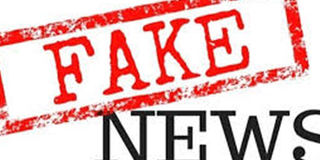TECH BREAK: Facebook's plan to curb fake news in Kenya

PHOTO | COURTESY
What you need to know:
- The company has partnered with three organisations in Kenya; Africa Check, Pesacheck and the global news agency AFP to aid in the fact-checking.
- If a post is identified as inaccurate, Facebook will rank it lower in News Feed, significantly reducing its distribution.
- Facebook pages found repeatedly publishing or sharing misinformation will see their distribution reduced and their ability to monetise and advertise removed.
Social media giant Facebook will start working with third-party fact-checkers to help assess the accuracy of news in Kenya, and reduce the spread of misinformation on its platform.
The company has partnered with three organisations in Kenya; Africa Check, Pesacheck and the global news agency AFP to aid in the fact-checking.
The programme according to Facebook, relies on feedback from the Facebook community, as one of many signals it uses to raise potentially false stories to the attention of the said fact-checkers for review.
This means that if a Facebook user, in his or her judgement, thinks that a shared link is not factual, he or she can report it and it's up to the fact-checkers to determine if it is factual or not.
They will give reviewed content ratings ranging from; False, a mix of accurate and inaccurate, true, not verifiable, satirical, personal opinions, prank generator sites and ‘not rated’ for content with broken links making it impossible to verify.
THROUGH VERIFICATION
Local articles will also be fact-checked alongside the verification of photos and videos. If a post is identified as inaccurate, Facebook will rank it lower in News Feed, significantly reducing its distribution.
Facebook pages found repeatedly publishing or sharing misinformation will see their distribution reduced and their ability to monetise and advertise removed.
Facebook users will receive notifications if they try to share a story, or have already shared one in the past that has been determined to be false, giving them the option to decide for themselves what to read, trust, and share.
The spread of fake news and misinformation took centre stage in Kenya during the 2017 electioneering period with sites like Facebook being an easy target for phonies.





